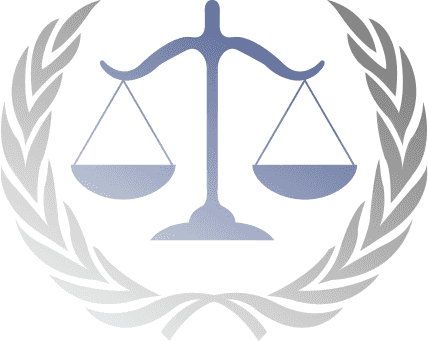
Washington D.C. Credit Card Debt Lawyer
Assisting Clients With Credit Card Debt Matters
Credit card debt can be overwhelming. If you are struggling to pay off your credit cards, you may be considering bankruptcy. However, bankruptcy is not your only option. If you are seeking credit card debt relief, it is critical that you speak with a Washington, DC, bankruptcy attorney who will review your situation and help you determine the best course of action.
At Belmont Law Firm, we understand that not everyone is a good candidate for bankruptcy. We will help you determine if bankruptcy is right for you or if there are other options available to you.
Schedule a free initial consultation with our Washington, DC, credit card debt attorneys by calling (202) 875-8445 or contacting us online.
How Bankruptcy Can Help with Credit Card Debt
Here are some key ways bankruptcy can help:
- Elimination of Unsecured Debt: In a Chapter 7 bankruptcy, most unsecured debts, which include credit card debt, can be discharged. This means you will no longer be legally required to pay these debts, giving you a fresh start.
- Structured Repayment Plan: If you qualify for Chapter 13 bankruptcy, you can create a structured repayment plan to pay back a portion of your debts over three to five years. This option allows you to keep your assets while making manageable payments toward your credit card debt and other obligations.
- Automatic Stay on Collection Activities: Filing for bankruptcy triggers an automatic stay, which halts all collection activities from creditors. This means you will no longer receive calls, letters, or lawsuits related to your credit card debt. This immediate relief can provide peace of mind as you work on your financial recovery.
- Protection from Creditor Harassment: Bankruptcy can protect you from aggressive collection tactics. Creditors are legally required to cease all collection efforts once you file for bankruptcy.
- Long-Term Financial Health: While bankruptcy may have short-term effects on your credit score, it can ultimately pave the way for long-term financial stability. By eliminating or restructuring your credit card debt, you can begin to rebuild your credit and establish healthier financial habits moving forward.
Local Debt Relief Solutions for Washington D.C. Residents
Living in Washington D.C. can come with its own set of financial challenges, especially when it comes to managing credit card debt. With the high cost of living and the unique economic landscape of the capital, many residents can find themselves struggling to keep up with their financial obligations. Local government resources, such as the District of Columbia Government and the U.S. Bankruptcy Court for the District of Columbia, provide valuable information and support for those seeking debt relief options.
Many Washington D.C. residents face the pain points of rising living expenses, student loans, and unexpected medical bills, which can lead to overwhelming credit card debt. If you find yourself in this situation, it’s important to know that you are not alone. Our team understands the local economic pressures and can help you navigate your options for debt relief.
Whether you are considering bankruptcy or exploring alternatives like debt negotiation or credit counseling, we can guide you through the process. We recognize that each individual’s financial situation is unique, and we are committed to helping you find the solution tailored to your needs. By leveraging local resources and understanding the specific challenges faced by residents in Washington D.C., we can assist you in regaining control of your financial future.


Understanding Chapter 7 Bankruptcy
Chapter 7 bankruptcy is referred to as liquidation bankruptcy. When you file for Chapter 7, all of your assets will be sold to pay back as much of your debt as possible. If there is anything left over after paying back your creditors, it will be returned to you. This type of bankruptcy is typically best for people who have little to no assets and a lot of debt.
Chapter 13 Bankruptcy: A Path to Debt Reorganization
Chapter 13 bankruptcy is referred to as reorganization bankruptcy. When you file for Chapter 13, you will work with a bankruptcy trustee to create a payment plan that will pay back your creditors over time. Typically, you will pay back a percentage of your income, and the rest of your debt will be forgiven at the end of the payment plan.
Debt Attorney Can Help You
We can assist you by:
- Assessment of Your Financial Situation: We will comprehensively assess your financial circumstances to understand the extent of your debt. This evaluation considers your income, expenses, assets, and liabilities, clearly showing your financial health. With this information, we can develop a tailored strategy to address your credit card debt effectively.
- Negotiating with Creditors: Dealing with creditors can be daunting. We can negotiate on your behalf, aiming to reduce your total debt or secure more manageable repayment terms. We have experience working with various creditors and can leverage our knowledge to reach a favorable settlement.
- Debt Relief Options: Several options are available for addressing credit card debt, and we can explain each in detail. Potential solutions include:
- Debt Settlement: This involves negotiating a lump-sum payment that is less than the total amount owed. It can be a viable option for those with a significant amount of debt and limited financial resources.
- Debt Management Plans: These are structured repayment plans negotiated with your creditors, often facilitated by credit counseling agencies. We can help you understand if this option is suitable for your situation.
- Bankruptcy: In some cases, bankruptcy may be the most effective way to deal with credit card debt. We will thoroughly explain the implications of filing for bankruptcy and help you determine if this is the right path.
- Understanding Your Rights: Consumers have rights under the Fair Debt Collection Practices Act (FDCPA). We will ensure that your rights are defended throughout the debt collection process. If you are subjected to harassment or illegal practices by creditors, we can take appropriate legal action to stop these behaviors.
- Emotional Support and Guidance: The stress of credit card debt can be emotionally draining. We are dedicated to ensuring you feel empowered and informed every step of the way.
Contact Our Credit Card Debt Attorney in Washington, D.C. Today
If you have been a victim of credit card fraud, you may be able to file a credit card lawsuit. This type of lawsuit is designed to help you get back any money you lost due to the credit card company's negligence. If you have been a victim of credit card fraud, you should speak with an attorney who is experienced with filing credit card lawsuits.
At Belmont Law Firm, we have helped many clients recover the money they lost due to credit card fraud. Contact us online or call (202) 875-8445 to schedule a free initial consultation with our Washington, DC, credit card debt lawyer.
Why Choose US?
Trusted Guidance That Exceeds Expectations-
Payment Plans Available
-
Free Consultations
-
Serving Washington DC Areas
-
Client Centered

We're Ready to Help You!
Contact Us Today for Your Free Initial Consultation



